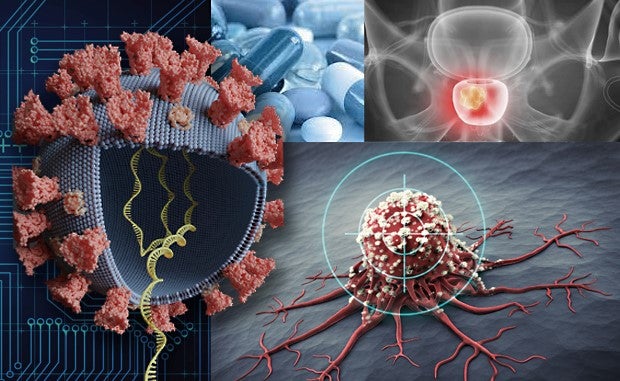

4 Innovations That Could Transform Health Care This Year

Evaluating and ranking innovations that have the greatest potential to transform health care is difficult, but each year Cleveland Clinic scientists and physicians give it their best shot.
In their recently issued Top 10 Medical Innovations for 2022, nearly 100 thought leaders within the health system elicited and rigorously evaluated more than 150 nominations. Here are some of the top innovations they see for this year.
1 | Next-Gen of mRNA Vaccinology
The emergence of the SARS-COV-2 virus and the pandemic that followed demonstrated the worldwide need for rapid development of a vaccine that was easily deployable. And thanks to previous research and technology advances that have been occurring since the 1960s, an effective COVID-19 vaccine was developed, produced, approved and deployed in less than a year.
The Significance
Advancements in the generation, purification and cellular delivery of RNA have enabled the development of RNA therapies across a broad array of applications, including cancer and Zika virus. The cost-effective technology is relatively easy to manufacture and targets pathways that couldn’t previously be effectively treated with drugs. Now, mRNA could help health care enter a new frontier in fighting disease.
2 | PSMA-Targeted Therapy Takes Aim at Prostate Cancer
Promising new imaging technology has emerged called prostate-specific membrane antigen positron emission tomography (PMSA PET). PSMA is an antigen found in high levels on the surface of prostate cancer cells and is a potential biomarker for the disease. The technology uses a radioactive tracer to locate and attach to PSMA proteins, which are then visible by PET. This targeted approach can be used in conjunction with CT or MRI scans to visualize where prostate cancer cells reside.
The Significance
Each year more than 200,000 American men receive a prostate cancer diagnosis — making it the most common cancer diagnosis among U.S. men. Experts anticipate the PET-tracer procedure will soon become the standard of care for detecting prostate cancer metastasis.
3 | Novel Drug Treatment for Type 2 Diabetes
Physicians typically prescribe Metformin as the first drug to treat type 2 diabetes, but a need arose for novel treatments in 2020 after the FDA discovered high amounts of carcinogens in the medication and halted most of its production temporarily. One potential therapy is a once-weekly injectable dual glucose-dependent insulinotropic polypeptide (GIP) and glucagon-like peptide receptor agonist (GLP-1).
The Significance
The treatment is now in late phase III clinical trials to control blood sugar. Injected under the skin into the stomach, thigh or upper arm, GLP-1 and GIP receptors activate in the body and cause the pancreas to release insulin and block the hormone glucagon, thereby limiting the blood sugar spike after eating. It also slows digestion, resulting in individuals remaining full longer and eating less.
4 | AI for Early Sepsis Detection
AI has surfaced as a new tool that can help rapidly detect sepsis in patients. Using AI algorithms, the tool detects several key sepsis risk factors in real-time by monitoring patients’ electronic medical records as physicians input information. Flagging high-risk patients can help facilitate early intervention, which can improve outcomes, lower care costs and save lives.
The Significance
Early diagnosis of sepsis and septic shock is critical, but diagnosis can be complicated because the symptoms are common across other conditions. The current standard for diagnosis is non-specific, the report explains, and it can take up to two days to get results. AI technology could help expedite this process.



